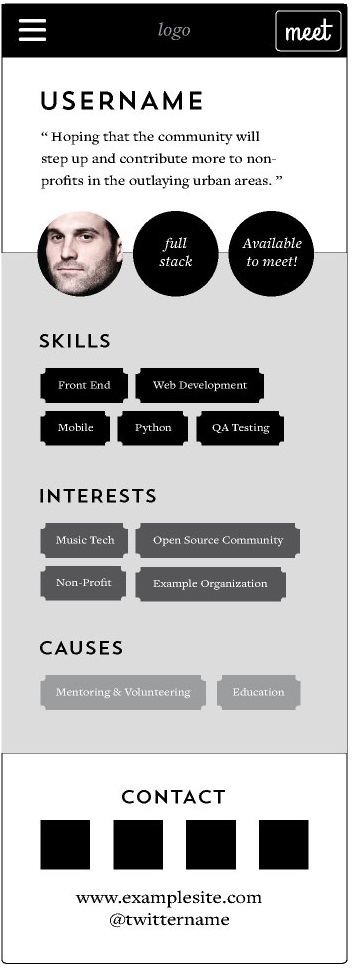“This is not your ordinary hackathon. This is the big leagues”. Such was the claim of Angelhack this past weekend, and two weeks after participating in my first ever serious hackathon, I found myself at another one. There really is something about the mix of meeting cool people, hacking unfamiliar platforms and testing your coding chops in a small amount of time that can be quite addicting.
Shakere, the product I worked on, is an iPhone app for finding people based on skills or interests in social gatherings. Yes, your umpteenth social product, guilty as charged. The space for social discovery really is a heavily contested one, which made me hesitant at first since variants of the idea has been tried by many. I joined however, after realizing that the team would work well together (we actually had a UX designer in the team. Yay!) and this was my chance to experience iOS development, even though I would be developing the backend.
I worked on rolling a RESTful API (https://github.com/shakere/backend), working on the LAMP stack. Though I have not worked too much on LAMP backends before, I must admit that the stack is well suited for rapid prototyping. PHP in particular was a pleasant surprise to work with, in parts because of working with Perl for most of last year. I have had a little stint with Rails, and while Rails seems far more powerful, PHP is more explicit with less magic going on behind the scenes which makes it easier for starters to tinker. However, I did find myself handling quite a few inc files soon and was grepping to find which function was defined where. If I am working on a larger scale PHP project, it would definitely be worth looking into frameworks/best practices for PHP code organization.

We got a neat version working well in time for the demo. The app being frontend heavy, I was done with a bit of time in hand, making it a more pleasant hackathon than the last one. Yet during presentation, we did run into the pitfall of not having tested our demo machines to the projector, and this is really a must if you want to avoid delays during your demos.
The ideas were definitely interesting to look at since the hackathon was not restricted to any particular domain. Some were targeting specifically Microsoft, Paypal or Amazon platforms, who were present at the event and provided prizes for the best app using their APIs. It was specifically interesting when domain experts (such as a scientist in a Columbia lab) came to the hackathon trying to device a service for their community. Field experts can have a certain deep understanding of a space and their demos were a good reflection of that.
We did not win unfortunately but judging did seem fair. The ideas winning were generally the apps which were the most mature or demonstrated a clear need base for their ideas. I particularly enjoyed prepared.ly and their combining the job skill-set with learning tools such as Udacity or CodeAcademy. With some personal analytics and initiatives to pick up the skills fast enough, this service can be very useful for coding job seekers.
For the next such event, I would definitely focus more on rolling out more features faster. We were perhaps guilty of actually going around and getting real user data to populate our databases. I would imagine for pre-shipping products you would want this, and MVPs these days certainly value user early user feedback. Hackathons have different needs from production apps though, and rapid feature deployment wins over iterating and getting existing features perfect. You live and you learn.